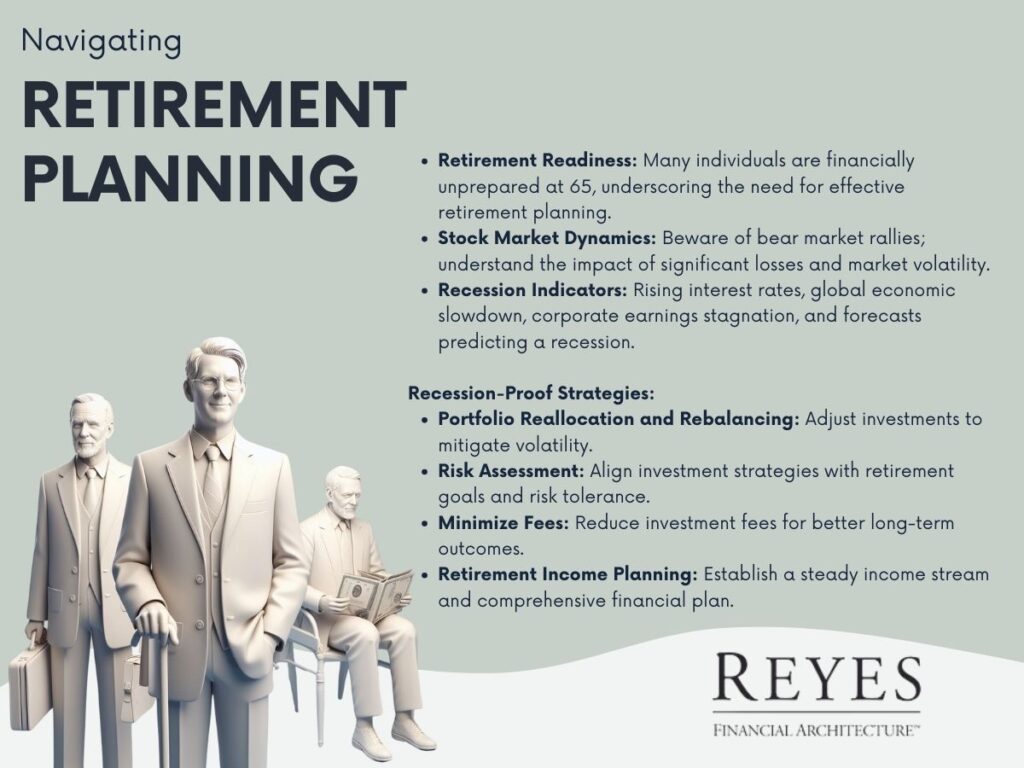Planning for retirement requires a keen understanding of market trends, interest rates, and other economic indicators. Here, we explore strategies and insights for securing a financially stable retirement, even in the face of potential economic downturns.

A significant number of individuals reach the age of 65 unprepared financially, often relying on family support or government assistance. This highlights the critical need for effective financial planning to ensure a consistent income throughout retirement.
An important aspect of stock market behavior to recognize is the phenomenon of bear market rallies. These are substantial yet typically temporary recoveries in a declining market, which can mislead investors into believing in the market's stability. The mathematical reality is that a stock falling by 50% and then gaining 50% is still 25% below its original value. This underscores the need to be wary of significant losses and to approach investment decisions with caution.
Several indicators suggest the possibility of an economic recession:
To reduce risks associated with economic downturns, several proactive measures are recommended:
Having a solid retirement plan can provide confidence, even during market downturns, preventing panic and impulsive decision-making.
The complexities of retirement planning, especially in uncertain economic times, make professional advice invaluable. Tailored retirement strategies, responsive to individual needs and economic conditions, are critical for achieving financial security in retirement.
Achieving a secure retirement amidst economic uncertainties is challenging but attainable with the right approach. Being informed about market dynamics, recognizing economic indicators, and taking strategic actions to protect retirement funds are integral to successful retirement planning. These insights offer guidance for individuals seeking to build a resilient and secure retirement plan, regardless of economic fluctuations.